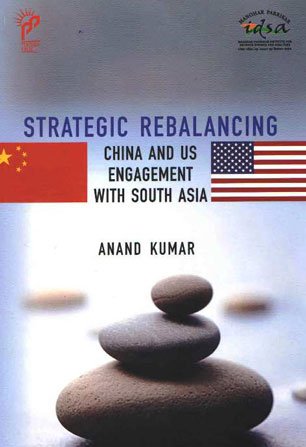Political Indifference and State Complicity: The Travails of Hazaras in Balochistan
Pakistan is a forbidding place for minorities—confessional, sectarian and ideological. Violence, direct and structural and exacted with eerie regularity has ghettoised minority communities and forced them to flee. Among them, no other community is being subjected to such annihilatory violence as the Hazaras in the Balochistan province. Hazaras are an ethnic group predominantly based in Afghanistan, but also with a sizeable population in Pakistan, with estimates ranging between 650,000 and 900,000.
Considered Chaos: Revisiting Pakistan’s ‘Strategic Depth’ in Afghanistan
Pakistan’s historical insecurity towards India and the Islamisation of its military raises a curious question of strategy and identity rooted in Pakistan’s political genesis. This article examines the social and geostrategic factors underpinning Pakistan’s Afghanistan approach between its inheritance of security principles from colonial administration after Partition, and the Taliban’s capture of Kabul in 1996 and beyond. This article also critically analyses the existing link between the Taliban and Pakistan’s Inter-Services Intelligence agency (ISI).
US-Taliban Talks for Afghan Peace: Complexities Galore
The ongoing dialogue between the US and the Taliban has generated lot of interest among strategic analysts in the region and beyond. There are indications that the Taliban are hardening their position as the US appears to be in a haste to pull off an agreement.
Decimating Democracy in 140 Characters or Less: Pakistan Army’s Subjugation of State Institutions through Twitter
The Directorate General of Inter Services Public Relations (DG-ISPR), or the Pakistan Army’s media wing has perfected the form of subverting democracy and showcasing the dominant position of the Army in the entire Pakistani polity. This article sets out to prove the same in a quantified manner. By analysing almost 25 tweets from the official account of DG-ISPR in the period 2016 ?18, the article tries to quantify, using the Merkel-Croissant model of embedded democracy, the priorities of the Pakistan Army.
Transformation of Indo-Bangladesh Relations: From Insecurity to Cooperation in Northeast India
Bangladesh and India are enjoying increasingly close relations in the latter’s northeastern region. This represents a transformation in the two countries’ past relationship, which was characterised by suspicion, distrust and insecurity. This recent change, which began with the arrival of Bangladesh’s current regime in 2009, has resulted in a sense of cooperation, mutual interest and connectivity. This article aims to explain this transformation.
Balochistan: On The International Drugs Superhighway
Pakistan’s Balochistan province, which shares borders with Iran and Afghanistan, has quietly functioned as one of the main arteries through which Afghanistan’s massive opium crop reaches the outer world. Six of the nine major drug trafficking routes from Afghanistan transit through Balochistan en route to Iran, Europe, Asia, Africa and North America. Afghanistan’s opium production peaked at 9,000 tons in 2017, on account of the country’s rampant instability and lack of viable options for families to sustain themselves.
The Current and Future State of India–Bangladesh Relations
At the outset, we must remind ourselves that Indo–Bangladesh cooperation began in the battlefield of 1971. As a freedom fighter diplomat, one recalls with deep appreciation and gratitude the whole-hearted support we received from the Government and people of India during the critical days of our nationhood. We pay homage to those brave Indian soldiers who laid down their lives for our independence. We also pay tribute to the valiant war veterans who fought with us in our War of Independence.
India–Bangladesh Relations: An Indian Perspective
The people of India and Bangladesh share close and multi-faceted socio-cultural, religious and linguistic ties spanning centuries. The two countries share the same values of secularism, pluralism and democracy, and the distinct honour of having their national anthem written by the same person—Kabiguru Rabindranath Tagore. Bangladesh Jatiyo Kabi Nazrul, Sarat Chandra Chattopadhyay, Lalon Fakir, etc., are revered on both sides of the border. Their influence transcends political boundaries and inspires people in both countries.
















